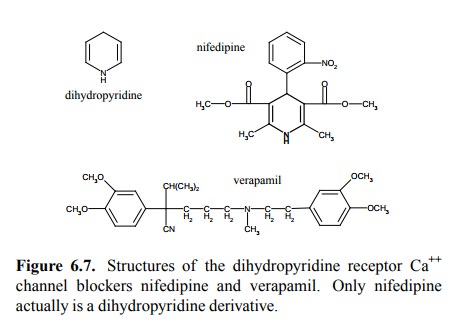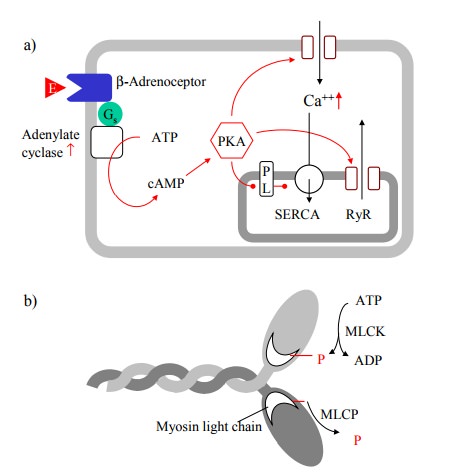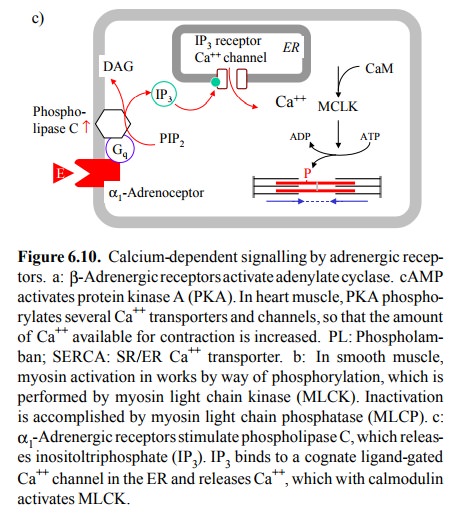Chapter: Biochemical Pharmacology : Drugs that act on sodium and potassium channels
Calcium channel blockers
Calcium channel blockers
Examples of such calcium
channel blockers are shown in Figure 6.7. While nifedipine contains the
dihydropyridine moiety (in red) after which the receptor has been named,
verapamil does not, indicating that the receptor's name does not reflect any
fundamental requirement of drug molecular structure.

We have seen before that
calcium channels are not only im-portant in the contraction of the heart muscle
but also in the generation of cardiac rhythm. The DHPR is present in both the
pacemaker and the muscle cells of the heart mus-cle. This means that calcium
channel blockers will not only reduce the contractility of the heart muscle
cells but also slow down the rhythm. Slowing down the rhythm means increased
duration of the interval between two contrac-tions (the diastole). The diastole
is the only period during which the pressure within the heart tissue does not
exceed the arterial blood pressure; therefore, only during the dias-tole the
heart tissue itself is effectively perfused. Reduced contractility and
prolonged pauses combine to improve the metabolic situation of heart muscle
cells suffering from re-duced perfusion in occlusive disease ???
The DHPR is also found in
vascular smooth muscle. While the mode of action of Ca++ is somewhat
different in smooth muscle than in striated muscle (cf. Figure 6.10b, below),
it is still crucial for contraction, and as in heart muscle, flow of Ca ++
across the plasma membrane is required. The DHPR in smooth muscle therefore
constitutes an impor-tant drug target for calcium channel blockers as well, as
they will decrease the vascular wall tension and, hence, the blood pressure.
The DHPR subtypes in heart and smooth muscle differ, and some blockers act more
strongly on ei-ther the smooth muscle (nifedipine) or the heart (vera-pamil).


Related Topics